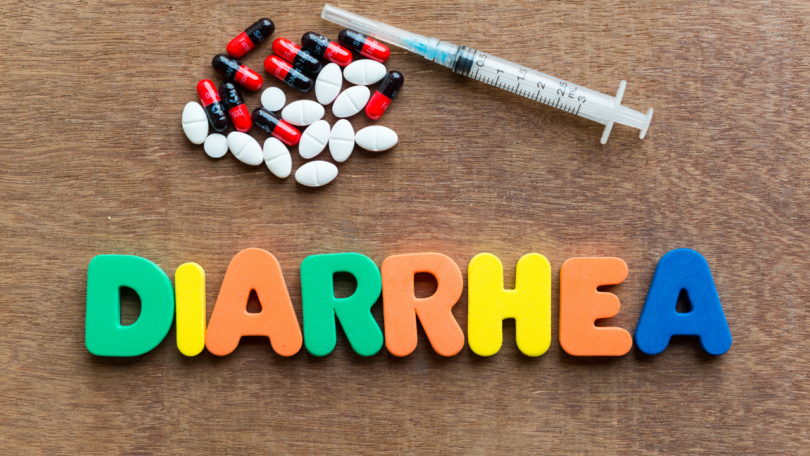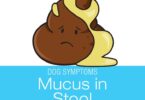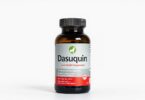Diarrhea in dogs is a common yet concerning issue for many pet owners. While it's natural for dogs to experience an occasional loose stool, persistent or severe diarrhea can signal an underlying health problem. Unlike humans, dogs have a unique digestive system that's more sensitive to changes in diet, environment, and overall health.
Understanding what causes diarrhea in dogs is the first step toward effective care. Factors like eating something unusual, sudden dietary changes, or exposure to toxins can trigger an episode. It's crucial to recognize the difference between normal and abnormal stool, as this can help you determine when to seek veterinary advice.
According to veterinarians, up to 80% of dogs may experience mild diarrhea at some point, often resolving without treatment. However, if your dog's diarrhea lasts more than 48 hours or is accompanied by symptoms like blood or lethargy, it's important to consult a vet. Timely intervention can prevent complications and ensure your pet's well-being.
In this article, we'll explore the common causes of dog diarrhea, how to identify when it's a cause for concern, and practical steps you can take to help your pet recover. With expert insights and actionable advice, you'll be better equipped to support your dog's digestive health.
Understanding Dog Diarrhea and Its Symptoms
Recognizing the differences between normal and abnormal stool is crucial for pet owners. Normal dog stool is typically chocolate brown in color and log-shaped, resembling Play-Doh in consistency. However, when stool becomes watery, jelly-like, or tinged with blood, it signals a potential health issue.
Recognizing Normal Versus Abnormal Stool
Abnormal stool may appear in unusual colors, such as yellow or black, which could indicate liver or intestinal issues. Additionally, the presence of blood, mucus, or foreign objects in the stool warrants immediate attention. These signs can point to infections, parasites, or ingestion of harmful substances.
When to Contact Your Veterinarian
If your dog experiences persistent diarrhea for more than 48 hours, especially when accompanied by lethargy, vomiting, or blood in the stool, it's essential to seek veterinary care. Early intervention can prevent complications and ensure your pet's well-being. For more detailed advice on managing your dog's digestive health, visit this resource.
Common Triggers and Dietary Factors Leading to Dog Diarrhea
Diet plays a significant role in your dog's digestive health. Certain foods and dietary changes can trigger diarrhea, making it essential to monitor what your dog eats.
Food Intolerance, Allergies, and Dietary Changes
Food intolerance and allergies are common causes of diarrhea in dogs. Ingredients like beef, dairy, or soy can irritate their digestive system, leading to loose stools. Sudden changes in your dog's diet can also disrupt their bowel movements. A gradual transition to new foods helps minimize this risk.
Ingestion of Foreign Objects and Toxins
Dogs often ingest items they shouldn't, like toys or toxic substances. These can cause immediate diarrhea. Keep an eye on your dog's behavior and contact your vet if you suspect they've eaten something harmful. For more advice, visit this resource.
What to Do When my dog has diarrhea
If your dog is experiencing diarrhea, it's important to act quickly to prevent complications. Understanding the appropriate steps can help your pet recover smoothly.
Home Treatment Options and First Steps
A short fasting period of 12 to 24 hours is often recommended to give your dog's digestive system time to recover. During this time, ensure your dog has access to fresh, clean water to stay hydrated. If advised by your vet, you can offer diluted, unflavored Pedialyte to prevent dehydration.
Fasting, Hydration, and Monitoring Signs
After fasting, gradually introduce a bland diet. Options like plain white rice combined with a small amount of chicken or pumpkin puree can help settle your dog's digestive tract. Monitor your dog's stool consistency and watch for signs like persistent diarrhea, lethargy, or dehydration, which may indicate the need for veterinary care.
For more information on managing your dog's digestive health, visit this resource.
Effective Treatments and Preventive Diets for Your Dog
Treating diarrhea in dogs often involves a combination of medical care and dietary adjustments. While mild cases may resolve on their own, severe or persistent episodes require professional guidance. Understanding the right treatments and dietary strategies can help restore your dog's health and prevent future issues.
Veterinary-Recommended Medications and Supplements
Veterinarians may prescribe medications to address the underlying cause of diarrhea. Kaolin and pectin are commonly used to absorb toxins and soothe the digestive tract. Additionally, probiotics can help restore the balance of healthy bacteria in the gut, supporting the recovery process. Always consult your vet before starting any medication to ensure it's appropriate for your dog's specific condition.
Bland Diets and Safe Food Alternatives
A bland diet is often recommended to help your dog recover from diarrhea. Boiled chicken and plain pumpkin are safe, easily digestible options that can help firm up stool. It's important to transition gradually back to your dog's regular food to avoid upsetting their digestive system again. For more information on dietary management, visit this article about Science Diet, a trusted source for canine nutrition.
Regular veterinary check-ups are crucial to monitor for underlying issues like infections or parasites. With the right care and preventive diets, you can help reduce the risk of recurring diarrhea episodes and keep your dog's digestive health on track.
Bringing It All Together: Maintaining Your Dog’s Health
Maintaining your dog's health involves a combination of preventive care, attentive monitoring, and timely veterinary interventions. By understanding the common causes of diarrhea and taking proactive steps, you can help your dog avoid unnecessary discomfort and potential complications.
Here’s a simple checklist to monitor your dog’s digestive health:
- Watch for changes in stool consistency, color, or the presence of blood or mucus.
- Ensure your dog has consistent, high-quality food and avoid sudden dietary changes.
- Keep an eye out for signs of dehydration, such as dry gums or lethargy.
- Contact your vet if diarrhea lasts more than 48 hours or is accompanied by vomiting or lethargy.
Preventive strategies are key to reducing the risk of diarrhea. Stick to a balanced diet, avoid exposing your dog to toxins, and be cautious with table scraps. If your dog does experience an episode, home treatments like a bland diet of white rice and pumpkin can help. However, always consult your vet before administering any medication.
Regular veterinary check-ups are essential for catching underlying issues early, such as infections or parasites. By staying informed and taking proactive steps, you can ensure your dog’s long-term health and wellbeing. Remember, your vet is your best resource for personalized advice and care.
FAQ
What are the most common causes of diarrhea in dogs?
Common causes include dietary changes, food allergies, infections, parasites, or eating something harmful. Stress or underlying health issues like liver or bowel disease can also trigger it.
How long should I wait before taking my dog to the vet?
If diarrhea lasts more than 24-48 hours, or if your dog shows signs of dehydration, blood in stool, lethargy, or vomiting, seek veterinary care immediately.
What foods can I safely give my dog to help with diarrhea?
A bland diet of cooked white rice and boiled chicken can help. Small amounts of canned pumpkin may also soothe your dog’s bowel. Avoid fatty or spicy foods.
Can I give my dog over-the-counter medication for diarrhea?
Always consult your veterinarian before giving any medication. Some human medications can be harmful to dogs.










Leave a Comment